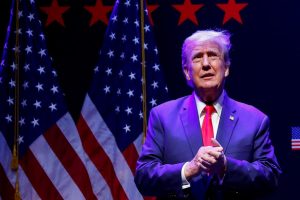Prime Minister Narendra Modi on Thursday told Shanghai Cooperation Organisation (SCO) member-states that the world is inexorably moving towards “real multipolarity” and the SCO must cooperate on technology, which not only holds a great promise at present times “but is increasingly a game changer on both development and security.”
In his remarks for the meeting of the SCO Council of Heads of States at Astana in Kazakhstan, delivered by External Affairs Minister Dr S Jaishankar present there, Mr Modi said the digital era surely needs more trust and transparency.
AI and Cyber security raise crucial issues of their own. But India has shown that digital public infrastructure and digital financial inclusion can make a huge difference, the Prime Minister said. Both were discussed during India’s SCO Presidency. They also expand the scope for international cooperation, involving SCO members and partners.
When it comes to geo-economics, he said, the need of the day is to create multiple, reliable and resilient supply chains. This is an important take away from the Covid experience. The prime minister said ‘Make in India’ can add to engines of global growth and help democratize the global economy. India is open to partnering with others in capacity building, especially nations of the Global South.
While standing resolute on challenges, it is equally important to actively and collaboratively explore avenues of progress, he said. The current global debate is focused on creating new connectivity linkages that would better serve a rebalanced world.
“If this is to gather serious momentum, it requires the joint efforts of many. It must also be respectful of sovereignty and territorial integrity of states and be built on the foundation of non-discriminatory trade and transit rights to neighbours,” he said.
“For the SCO extended family, we flag the progress made on Chabahar port recently through a long-term agreement between India and Iran. This not only holds great value to landlocked Central Asian states but also de-risks commerce between India and Eurasia,” he said.
The prime minister said, “While on the region, let me also speak about Afghanistan. We have a historical relationship between our peoples that is the bedrock of our ties. Our cooperation covers development projects, humanitarian assistance, capacity building, and sports. India remains sensitive to the needs and aspirations of the Afghan people.”
He called the SCO an extended family that shares a commitment to reform the current international order. “This is only possible when those efforts extend to the United Nations and its Security Council. We hope that in the near future, we can develop a strong consensus on the way ahead,” he said.
India has contributed significantly to enhancing the economic agenda of the SCO, he said. “We have institutionalized mechanisms like SCO Startup Forum and Special Working Group on Startup and Innovation. With a 130,000 Startups in India, including 100 unicorns, our experience can be useful to others,” he added.
In his remarks, PM Modi said, “When it comes to medical and wellness tourism, you may be aware that WHO has set up a Global Center for Traditional Medicine in Gujarat. In SCO, India has taken the initiative for a new SCO Working Group on Traditional Medicine.”
Enhancing education, training, and capacity-building are key pillars of India’s international cooperation, he said. “We are committed to further building on them, be it with the C5 partners, or those of ‘Neighbourhood First’ or the extended neighbourhood,” he said.
“As more countries seek association with SCO as Observers or Dialogue Partners, we must strive to communicate better and deepen our consensus. Granting English the status of a third official language will be crucial,” he said.
“We congratulate the Kazakh side for hosting a successful Summit. As Vishwa Bandhu or the friend of the world, India will always strive to deepen cooperation with all its partners. We also extend our best wishes to the success of the upcoming Chinese presidency of SCO,” the prime minister said.












